“I hear, and I forget; I see, and I remember; I do, and I understand”
Did you know that as individuals we have different styles of learning? The main categories are: Visual, Aural, Physical, Verbal and Logical, and within that some may learn better in a social environment, whilst others will learn better in a solitary environment. There is no one size fits all, period.
Having coached thousands (yes, literally) of beginners to stand up for the first time, it soon became clear to us that the type of coaching that was being taught in surf schools was different to what one needs to actually become a surfer. We are not only there to get someone to stand up once and get the photo, we actually want to teach you how to surf and how to be a surfer. We teach people skills and techniques that may be more difficult to master now, but will help them in their surfing later on, focusing on long-term gain. Two perfect examples are; the pop-up technique that we teach, as well as the rule that we (try) to live by of NOT pushing our surfers into waves!
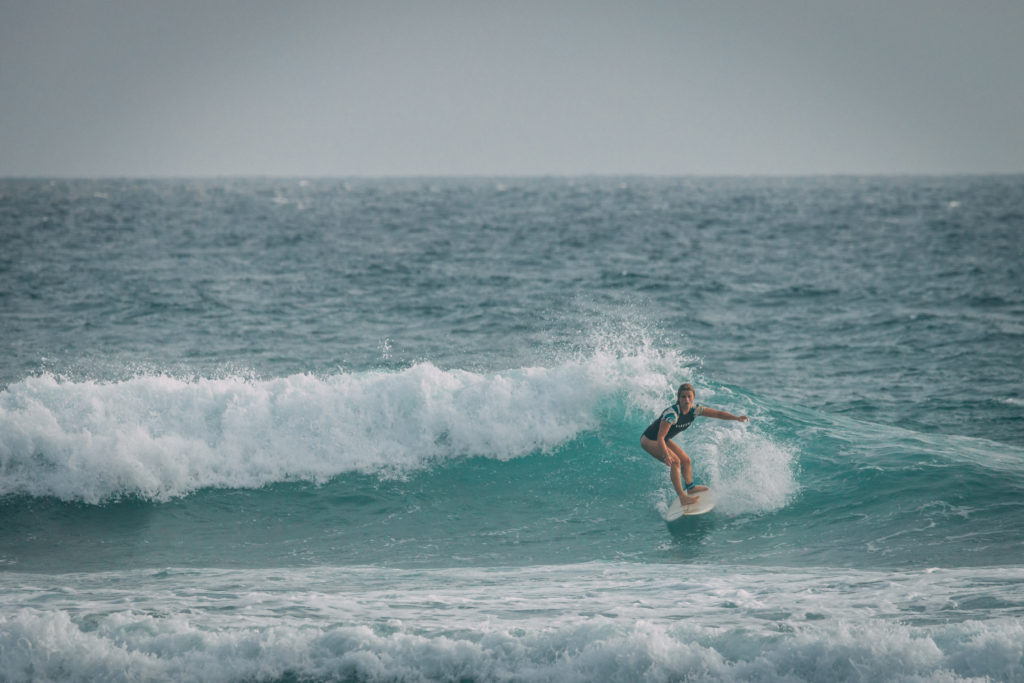
Ticket to Ride’s first surf trip in 2007 was a 10-week surf-coaching intensive trip in South Africa, taking mostly complete beginners on a surfing experience of a lifetime. How many other coaches get the opportunity to work with a single surfer every day for 10 weeks straight? Very few, if any. We learned a few things in this time, primarily a detailed look at what bad habits are in surfing and how they will come back to haunt you. As the coach, they will come back to haunt you as much as the surfer, by trying to provide a quick-fix solution to a pop-up, or stance, it will come back to bite you later on for sure. Whether we like it or not, we have to approach it with a long term view, because we are also along for the ride…
So let’s not beat around the bush, surfing is an incredibly difficult activity to master. Everyone thinks the standing up is the hard part, but that’s just the beginning. Paddling out, positioning when catching waves, timing of paddling and popping up, dealing with other surfers are just a few of the challenges which you don’t face in other recreational sports. I have had surfs where it takes me over 30 minutes just to get to the backline, other surfs where I only catch one wave in 2 hours, and that’s with twenty five years of shortboard surfing experience.
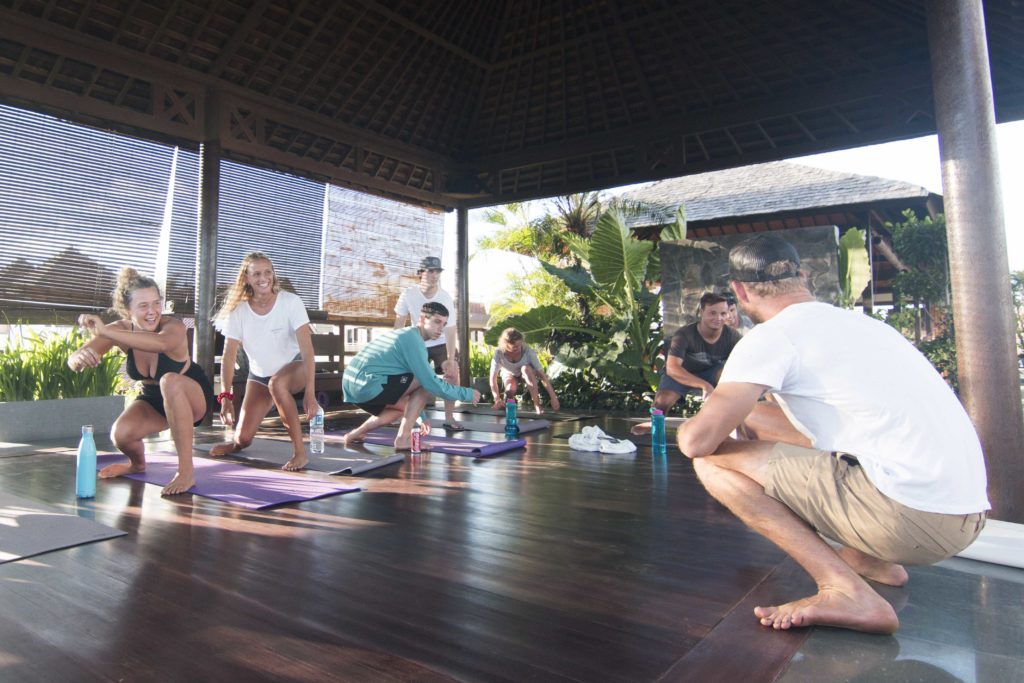
Our goal with Ticket to Ride is to provide the surfer with a platform that will stand the test of time. To teach and create good habits in your surfing, that will sometimes only really be applicable 6 months or even longer down the line. You can do a terrible pop-up and stand with your legs straight looking down at your feet and still ride a wave. But, as opposed to just cheering, we’ll give you feedback both in the water, on the beach, use in classroom video analysis, surf specific training and even surf skating to help show you technique correction that will improve your surfing more rapidly. Once we’ve shown it to you, we’ll teach you how to do it, then you’ll get in the water and try it, and we’ll be there right there in the water reminding you.
So then, how are we different? What makes us the best place to go to for surf coaching? We looking at surfing from a holistic point of view, focusing initially primarily on the Surfer (physical, emotional, mental), Ocean (conditions and types of different waves) and Equipment.
Ocean wise, the one thing we can do is choose when and where to surf, so a lot of thought and time is spent deliberating over this on our trips depending on the skill sets and fitness levels of the people we have with us. Whilst a lot of people would choose the easiest place to get to to coach, we are happy to drive a little further or make it more of a challenge knowing the initial challenge will help the surfer in the long run. The type of surf spots you surf will determine both your immediate success as well as form a part of your skill-set that you will take with you as you continue to surf. Understanding different types of breaks will allow you to surf anywhere in the world, which is why we do an ‘in-classroom’ presentation on types of surf breaks as well.
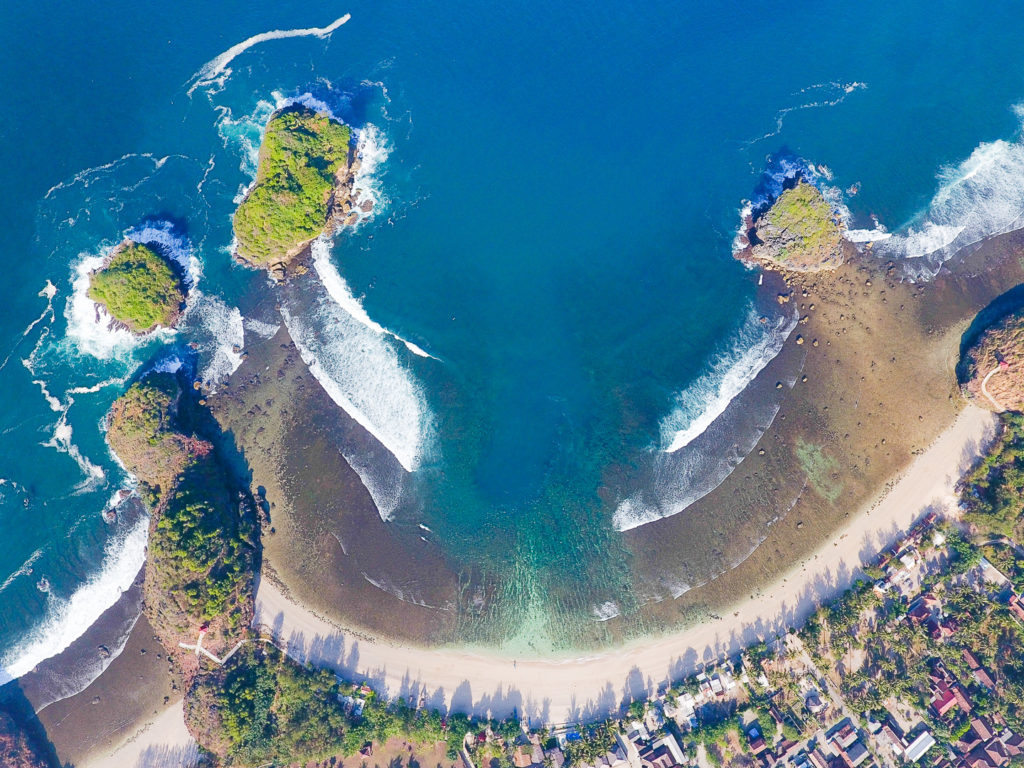
Equipment choice is another crucial element to progressing your surfing. The number of people that have arrived on our trips with a shortboard that they were sold at a surf shop as a beginner is embarrassing. The outcome is simple; a frustrated person who can barely if at all stand up on their surfboard and is almost ready to quit. However, if you are put on the right equipment, that very next surf will most likely be the best surf of your life. Referring to our South Africa trip where we have to coach the person for the next 9 weeks after they get their surfboard, if they are on the wrong surfboard it makes our job almost impossible. So, we get it right, and trust me when I say that bigger is better when it comes to surfboards and improving your surfing. We also do a presentation on surfboards to teach you all about them, Dimensions, rocker, concave, volume, types of boards, quads, thrusters, swallow tails, etc. We will also go through all of this on any surf camp we run.
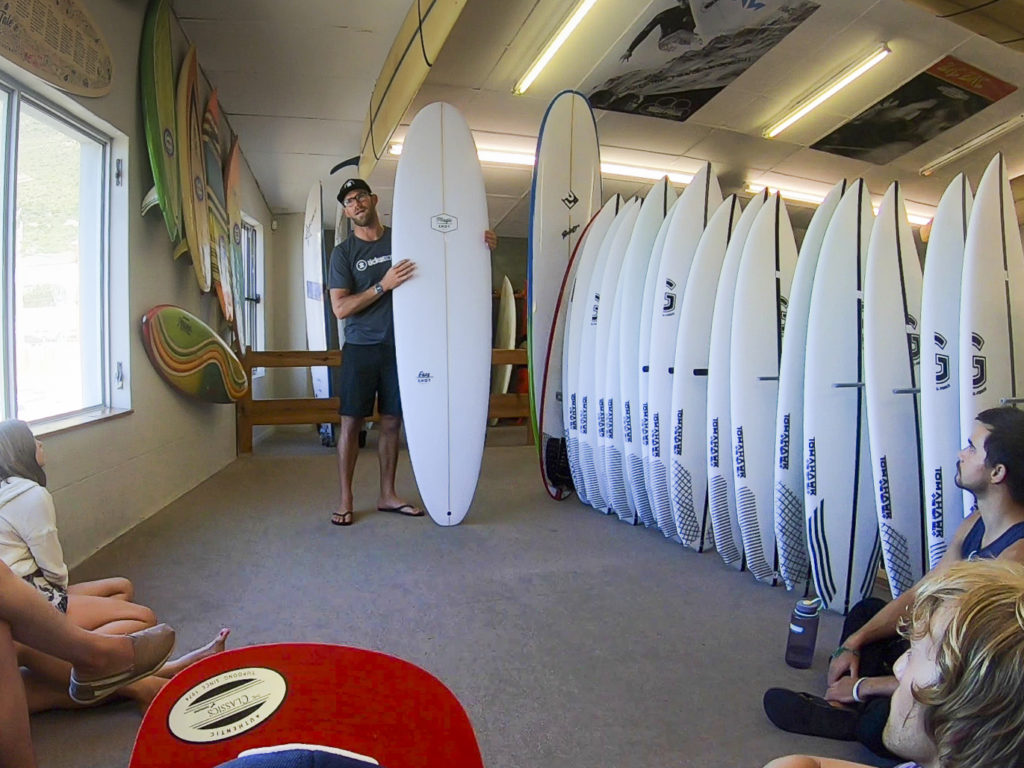
“Please don’t be offended if we put you on something bigger and tell you to hang your other board on the wall or sell it.”
Now you, the surfer. Having coached a lot of competitive surfing, there is a simple saying that I stick to; “control the controllables”. In competitive surfing there is a lot that is out of your control, but you can control what you eat, how much you stretch, sleep, exercise, equipment you use, tides/conditions/spots you surf, how frequently you surf, the headspace going into a surf etc. By focusing on what you can, it allows you as the surfer to increase the likelihood of having a good session, simple.
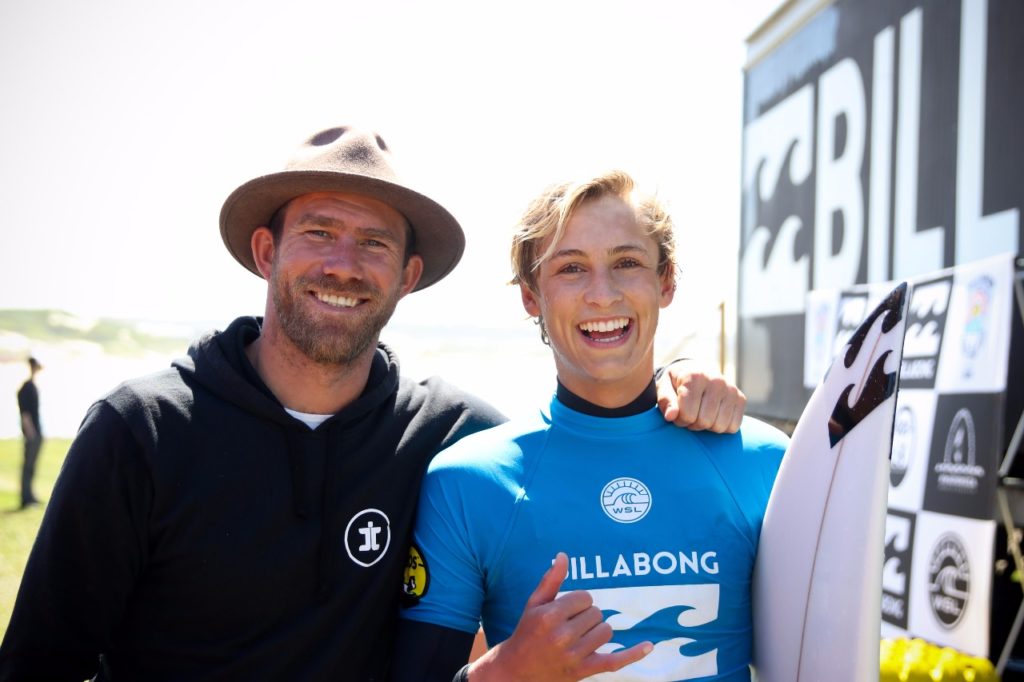
From our surfing and coaching experience we could talk for hours about this and when we observe someone of any level surf there would be 10 or more quickly identifiable areas in their surfing which they need to work on, change outright, or improve to be a better surfer. The true quality of an exceptional surf coach, lies in choosing the right thing to work on at the right time that will make the biggest difference and then sharing the tools that will help a surfer along their journey to reach their surfing potential.
We’ll be sharing more details of how we coach and sharing what we coach over the next few weeks. So here’s to a happy, surf-filled New Year! 🙂